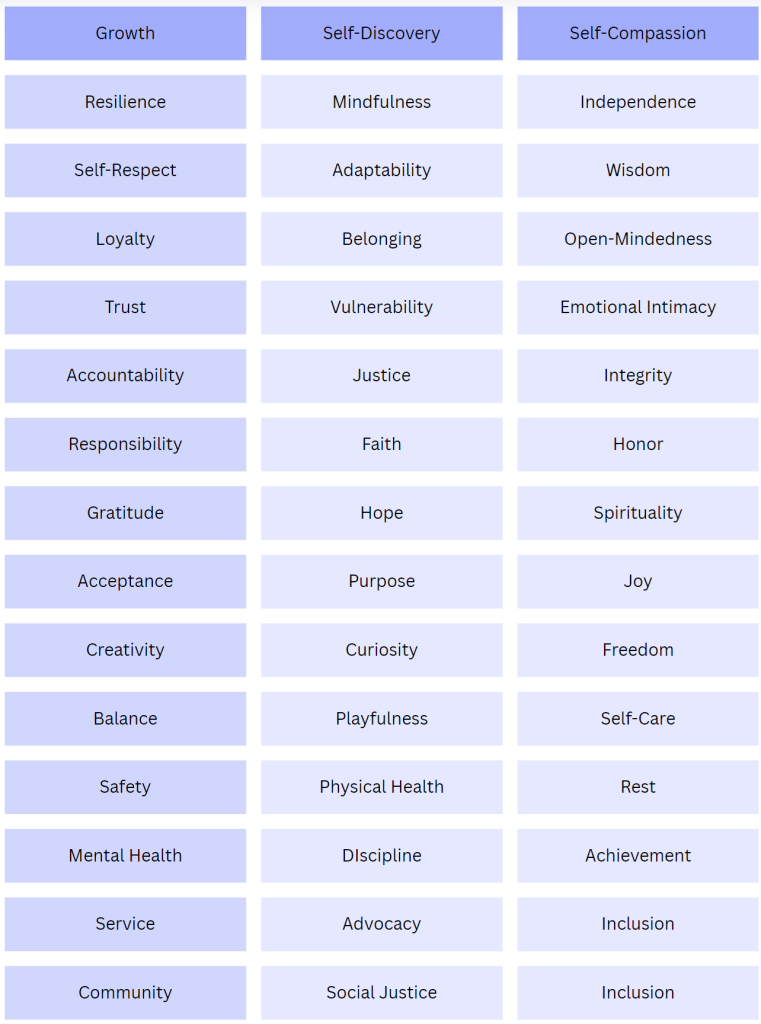Core values are a fundamental concept in Acceptance and Commitment Therapy (ACT), a theoretical approach that emphasizes the importance of psychological flexibility (to learn more about psychological flexibility and ACT, check out Therapeutic Approaches).
Values represent what is most important and meaningful to an individual, serving as principles that guide our behaviour and decision-making.
Why are Core Values Important?
Understanding and living by our core values is crucial for several different reasons. They provide us with a sense of direction, helping us to navigate the complexities of life by aligning our choices with what truly matters to us. When we act in accordance with our values, we experience a heightened sense of motivation and fulfillment, as our actions resonate with our deepest beliefs. Perhaps most importantly, living by our values allows us to embrace our authentic selves. By understanding and honoring our values, we can cultivate a life that is purposeful, meaningful, and deeply aligned with our true selves. This is particularly important, as we tend to experience less internal conflict and cognitive dissonance within ourselves, leading to reduced stress levels and a fostered sense of self-growth and progress.
Values also provide clarity in decision-making, offering a clearer framework on how to navigate complex, difficulty, or ambiguous situations. In the area of relationships, values can enhance our connections with others and allow us to navigate interpersonal dynamics more effectively.
Strategies to Explore and Identify Your Core Values
Here are some techniques that you can try out to help you discover and clarify your core values:
- Reflect on your peak experiences: Think about the times in your life where you felt most alive, fulfilled, or proud. What was important to you in these moments?
- Imagine your “ideal self”: Visualize the person that you would like to be. What qualities and principles does this ideal version of you encompass?
- Use Value Cards: Sort through a deck of cards with different values written on them, prioritizing those that resonate the most with what you believe in.
- Explore different life domains: Consider what’s important to you in different areas of your life – such as relationships, career, personal growth, and community connection.
- Journal: Write about your thoughts, feelings, and experiences. In doing so, you can look for recurring themes that might indicate underlying values that may have gone unnoticed.
Here’s a list of values to help get you started:

Comments are closed